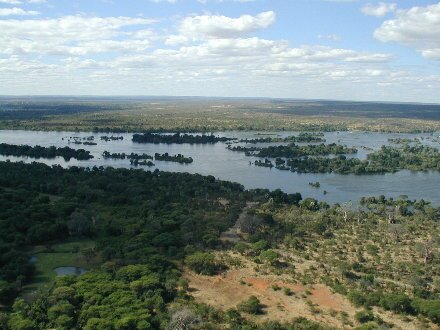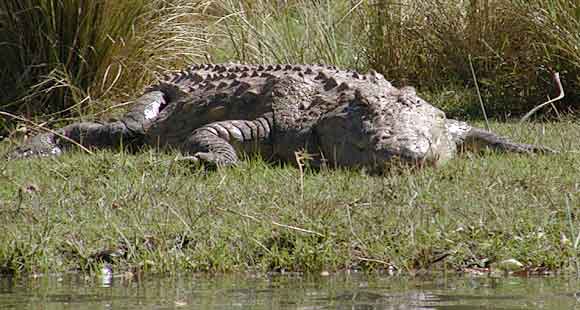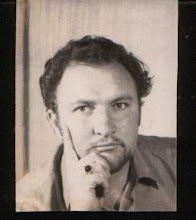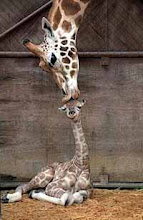
The cave sat high in the cliff face on the rim of the Zambezi escarpment where the Chongwe River joins the mighty Zambezi. There was a narrow steep footpath leading from the bottom of the escarpment to the mouth of the cave, and it was not visible from the foot of the hills. Walking up that footpath was torturous; some places one could only climb higher with the aid of saplings and bushes as hand holds.
I was far from fit when I attempted the climb up the pathway, and had to sit halfway up to catch my breath and have a swallow of water from my water flask before continuing up to the top. When I arrived at the opening I was surprised to see that the ground in front of it was swept clean and there were the remains of a fire in the circle of stones which was smoldering and still warm from the night's vigil. The cave itself seemed dark and ominous. I approached it very carefully and stood at the entrance peering in.
"Hodi," I gave the greeting, and sat on my haunches waiting at the entrance. Within a short while an old man came shuffling out leaning on a staff. He was dressed in an old world war two army greatcoat and had boots on his feet. His hair was white as snow, and he had a lined face with a scar from his right ear to the point of his chin. His eyes were deep set and black as coal. His skin was amazingly light compared with the peoples that lived in the valley.
I could see that he was taken aback to see a white boy sitting at his cave's entrance, but he quickly recovered composure and greeted me with a "good morning" in good English. Walking over to the fire he stirred up the coals, placed a few logs on the embers, and blew the red coals till small flames started to catch onto the twigs. As soon as they were burning brightly he stood up and motioned to two rough stools next to the fire.
Sitting down on the one stool I reached into my knapsack and pulled out a thermos flask of coffee and two tin mugs. Opening the flask I poured two mugs of steaming black coffee, and offered him one, then took out a jar of sugar which I opened and sticking a teaspoon into it I passed it on to him. He spooned six spoons of sugar into his mug, and after stirring it vigorously he handed the sugar back to me and sat down on his stool. With both hands around the mug he blew on the surface and took a sip smacking his lips in appreciation. I spooned two sugars into my mug and took a swallow of coffee. I dipped into the rucksack again and pulled out a bag of hard rusks which I opened and offered to him. He reached in and drew out a long rusk which he dunked into the coffee and bit off a piece chewing with relish and smacking his lips before demolishing the rest and reaching into the bag for more.
We sat drinking coffee and dunking rusks, and when the bag was empty he sat back on his stool and fixed me with a level gaze. "What brings you to this wild place?" He asked, "I have never seen a white man up here, let alone one as young as you."
"I am hunting in this area, and old Kaputula of Chief Chiawa's village told me of you and suggested that I paid you a visit. He said that you have more knowledge of the beasts that inhabit the Valley than anyone, and that you are a hunter and you know how to shoot a rifle."
"It is a very long time since I fired a rifle, and my eyes are not so good anymore, so that I doubt if I could make a good hunting companion any longer." He stared out over the valley below at the Zambezi flowing in the distance. "But I know where the big game is to be found, and if you come up here I will be pleased to tell you in which direction you should hunt for the best success."
"That will be good," I said "I Will go back to my camp and bring it closer and set it up next to the Zambezi River and then you can accompany Edward and myself in the Land Rover, and you need do no walking or hard work, and I will give you a share of the meat." I folded the empty rusk packet and put it back in my rucksack. He stood up, took the two mugs and walked over to a large earthenware pot standing next to the entrance, and dipping the mugs in one by one he rinsed them and brought them over to me and handed them over. I stuffed them into the pack, and as I started to rise I saw something sidling out of the cave's entrance. It was an enormous hyena. It came out and stalked over to the old man with a nervous cackle. He stretched out his hand and scratched the animal behind the ears. "This is my dog, I have had her since she was a pup, and she sleeps with me in the cave and keeps out the leopards that are always trying to put me out of the cave. You will see that she is quite tame and will greet you once she gets used to you."

I looked at the slavering jaws of the animal a bit apprehensively and just nodded my head, and then I noticed that it had three strings of beads plaited into its mane. It flopped onto its side at his feet and started to absorb the sunshine which was starting to get quite hot foreshadowing a scorching day ahead. Getting up I slung my satchel over my shoulder and after greeting him I left down the path to where I had left the Land Rover.
Back at camp I started packing up and then left for the Zambezi River where we found a stand of tall water berry trees under which we prepared a most comfortable campsite quite close to the water. We cleared a path to the water and cut away the coarse grass so that I could fish from the bank. Now that I had the Land Rover with a two wheeled trailer I could carry enough camping equipment to make life in the wilds so much more agreeable, and the mobility was fantastic. I could cover twenty times more countryside in a day than on foot. Thus I noticed just how full of wildlife the Valley really was. The thick Jesse bush was full of Buffalo and bushbuck, with wild bush pig and warthogs; Lion and Leopard left plenty sign, the open Mopani glades had Impala and Kudu, and small herds of Eland and Roan antelope could be seen along the river and in the open spaces with Waterbuck sprinkled all along the rivers and gulleys. The river itself teemed with Hippos and crocodiles, Monitor lizards were often seen along the banks looking for crocodile nests to rob. Elephants were numerous in sometimes small family herds, and groups of bachelor bulls. And black Rhino were often encountered. They would rush off huffing and blowing like a steam engine.
I set up camp with a heavy canvas safari tent in one corner, a reed enclosure with a canvass ground sheet and a tin bath as the ablution block, and set up the folding camp chairs in front of the fireplace which was a shallow pit ringed with round boulders with one or two flat stones to put utensils on. There was an iron grid to grill meat on, and three squarish stones to take the three legged pot. There was a fold up table on which we cut biltong, and on which I ate my meals. We would pile the dirty dishes into an apple crate and they were washed at the river. The Land Rover was parked on one side of my tent with the trailer on the other side. I had a fold up camp bed in the tent, with a tin trunk in which my spare clothes, toiletries and spare ammunition were stored. It also doubled as a bedside table with a kerosene lamp for reading at night. On the other side of the fire Edward had set up the canopy of the Land Rover almost covered with thorn bushes as his bedroom safe from marauding predators, with his own fire nearby. That night I went to sleep thinking of the strange old man living in the cave with his tame hyena and with no human for company, like a true hermit.
The fire was burning brightly, and the noises of the night were filtering through the canvas of my tent, and I fell asleep with the excitement of my new discovery filling me with anticipation of the new day to come.
As the light of dawn touched the east I was out of my tent and putting my coffee pot over the embers to boil, I started breakfast of two fried eggs, two slices of toast and a scoop of the mystery meal out of the hunter's pot near the fire. This pot is kept on the boil continuously with all sorts of meat added as and when something is shot. It could be neck of impala, with some kudu kidneys and even spurwing goose cooked till the meat fell off the bones, adding water when it starts to boil dry. During the day when we leave for the veld, the pot is moved away from the heat and stowed where it could keep warm near the fire, and when we returned it is immediately put back to the hot side of the fire to slowly start boiling again, and the catch of the day is then added to increase the volume
. When the sun rose above the top of the mountains, and flooded the valley in the first rays turning everything red and gold, we made up a parcel of dried biltong, half a bag of maize meal, some salt, a packet of sugar and a hand full of coffee. Then we both climbed into the Land Rover and set off for the cave.
The climb was even tougher this time round because the muscles in my legs were stiff and ached as if I had done a hundred mile marathon. It is said that when muscles are stiff from exercise, then they need more to loosen them up, but in my case this did not work, they just went from bad to worse, and I felt every step of the way…Painfully.
As we reached the top we saw that the old man was already sitting at the entrance dressed in a pair of khaki shorts and shirt with a kaross of jackal skins over his shoulders like a cloak. We deposited the foodstuffs at the entrance and greeted him with the traditional hand clapping.
"Come into my cave," he said "and we will see what you can expect to see today." Getting up from his stool he took the lead into the cave.

The interior was dim, with a fire burning in the middle. There was no sign of the hyena, but the interior was foreboding and smelt of wood smoke and dank animal pelts. Three carved stools were arranged in a corner with an antelope hide on the floor. The old man went to the fire and placed some wood on it and when it flared up I could see that the cave was large and extended far to the rear. He walked over to where his bedding was neatly rolled up, and took a bag from the ledge next to his bed. He then donned a headdress which was made out of the tails of the genet cat, and dropping his greatcoat he walked over to the fire and sat cross legged on the antelope hide. Motioning us to sit on the stools, he untied the skin bag, shook it and cast the contents onto the hide scattering them at random. I could see that the contents were knuckle bones of some small animals, four flat bone pieces that looked like dominoes, a tip of duiker horn, and some cowry shells. There were two brass buttons and a small ingot of copper. Some round pebbles completed the contents.
The old man took a small bottle of snuff from his waistband, and after inhaling a pinch into each nostril and sneezing mightily over the scattered bones he picked up a stick and started to move them around while mumbling and crooning softly.
"I see that you will have a successful hunt while you are here, if you want some good meat, take a walk up the dry gulch running away from the river, and there will be a big Eland bull standing. I have already put muti (medicine) over him so that his senses are dull and he will not see you. Be careful, tomorrow you will find a small herd of buffalo, but they are dangerous, and leave the bulls alone shoot a nice fat cow if you need to. You can cut me some meat with bone and leave it in the fork of the tree which stands at the end of my footpath, also Edward will find a bee hive in a baobab tree with much honey of which I am also very fond, but do not forget to leave a large comb with grubs for the honey guide bird that will lead you to it. Go now that Eland will not wait there too long, and you may miss it."
We scurried out of the cave, and back to the Land Rover, started the motor and turned the nose towards the dry gulley about half a mile away. As soon as we got to the edge we stopped the motor and slowly walked up the sandy bed. After about three hundred paces, I saw something which looked like a log ahead. As we were watching it I suddenly saw two horns emerging, and the creature stood up. It was an enormous Eland bull. Taking careful aim I sent a shot into its thick neck and the creature fell as if pole axed. We ran forward, and when we reached him he had already stopped kicking. I slit the throat to let the blood run out, and we turned it onto its back to start skinning it. I left Edward to continue skinning, and walked back to bring the Land Rover closer to the carcass. Climbing out of the gulley where we had entered it I walked toward the vehicle, and spotted four buffalo grazing about fifty yards away. The temptation was great to shoot the fat cow gazing towards me, but I relented as an Eland bull consists of at least a ton of meat, and we were only two to dress it.
Driving along the gulley I found a break in the bank down which I could drive the Land Rover, and take it right up to the Eland. Edward had already scored the hide above the fetlocks, and had cut down the inside of the legs to the middle of the underbelly, and was busy cutting a line from the jaw to the tip of its tail, joining the cuts from the legs to this lengthwise cut.
Starting with a leg each we flayed the hide from the meat by cutting through the filmy membranes attaching the skin, and bit by bit it came loose. When all the legs were skinned out we started on the same side and skinned the side loose up to the backbone. Then the other side was done the same way. The skin around the mighty neck was skinned around, and it was cut off at the base of the skull. After that Edward cut through the spine with the aid of his axe, and lopped off the head. I slit the neck down the throat to expose the gullet. Next Edward stared to cut the brisket bone, while I opened the stomach cavity by starting at the breastbone and putting the tip of my knife in carefully so as not to puncture the stomach sack and getting its contents onto the meat. As soon as the stomach and intestines were removed, we started to dismember the carcass, and loaded the various pieces onto the back of the Land Rover. Although the Land Rover had a long wheel base, we had to do two trips to haul all the meat back to camp.
Back at camp while we were stripping the meat from the bones Edward said to me: "Old Wasu is really a wizard, how could he have known the Eland bull would be standing in the gulley if he were not a wizard?"
It could have been a favorite resting place of the bull and Wasu knew about it, but the small group of buffalo he could not have known about. I think it would be good for us to take note of what he tells us in the future. Let us reward him with a whole fore quarter of meat, plus some meaty bones for his dog. If we cut the biltong now, then we can hang it to dry tonight, and we can leave early on the third day, and we can take the other forequarter home with the briskets for fresh meat."
"Sure," I retorted, "let us do that, I would like to get the meat home as soon as possible. We still have half a bag of maize meal, and some sugar, as well as some coffee which we can also leave plus a pint of cape brandy which I am sure the old guy will enjoy. We can leave it all at his tree."
We cut the muscles from the bone, and then cut them into two inch thick strips which we layered onto the flesh side of the skin, salting each layer with coarse salt, and adding a generous amount pepper with a sprinkling of brown sugar and some grape vinegar.
When the strips were all cut up and the skin was full, we closed it all by bringing the four legs together and tying them with wire. Then we lifted it into the back of the Land Rover and left it there in the shade to cure and draw out the moisture. I washed, and then took up my fishing pole and went to the river bank to catch some fish for supper. That late afternoon we hung the biltong strips over wires which we had stretched between some trees, and then took Wasu's cache to his tree and I hung the forequarter from a branch with a stout piece of rope so that the predators could not get at it.

Three days later we were gone, and as we passed the tree at the foot of the path we noticed that all the provisions as well as the meat were gone too. Only the rope was still hanging in the tree. We left it there because we knew that we would see him again in the very near future.
 The Zambezi River flows to the sea through some of the most spectacular bush country in Africa. The valley through which it flows is approximately fifty miles wide, and the river itself has a mean width of about a mile. It flows through a few gorges with rocky shale beds and deep dark fast moving water. Stretches of white water rapids occur in a number of stretches. They could be the delight of the rough river rafter as the thrill of shooting the massive rapids should be the best in the world.
The Zambezi River flows to the sea through some of the most spectacular bush country in Africa. The valley through which it flows is approximately fifty miles wide, and the river itself has a mean width of about a mile. It flows through a few gorges with rocky shale beds and deep dark fast moving water. Stretches of white water rapids occur in a number of stretches. They could be the delight of the rough river rafter as the thrill of shooting the massive rapids should be the best in the world.
















